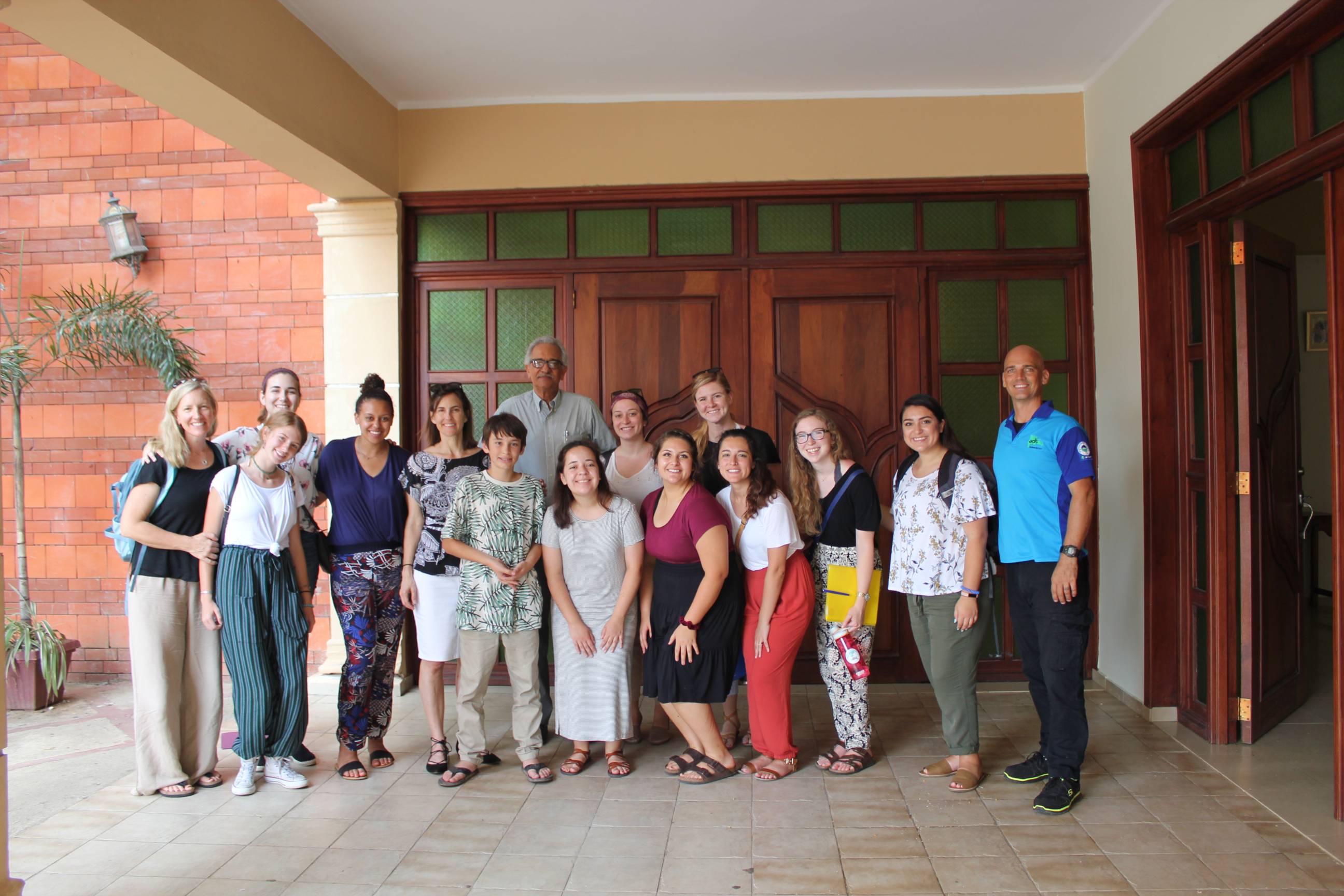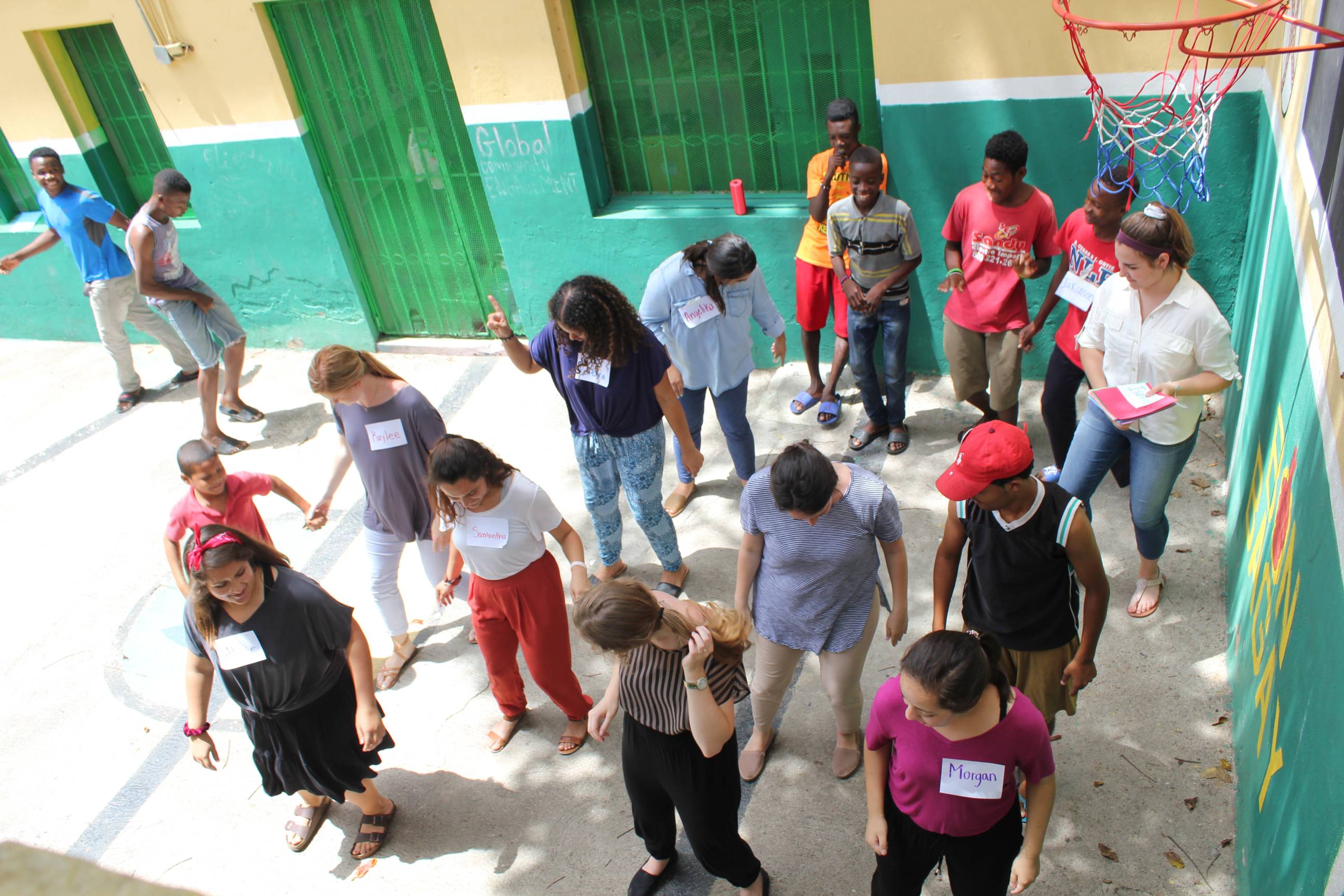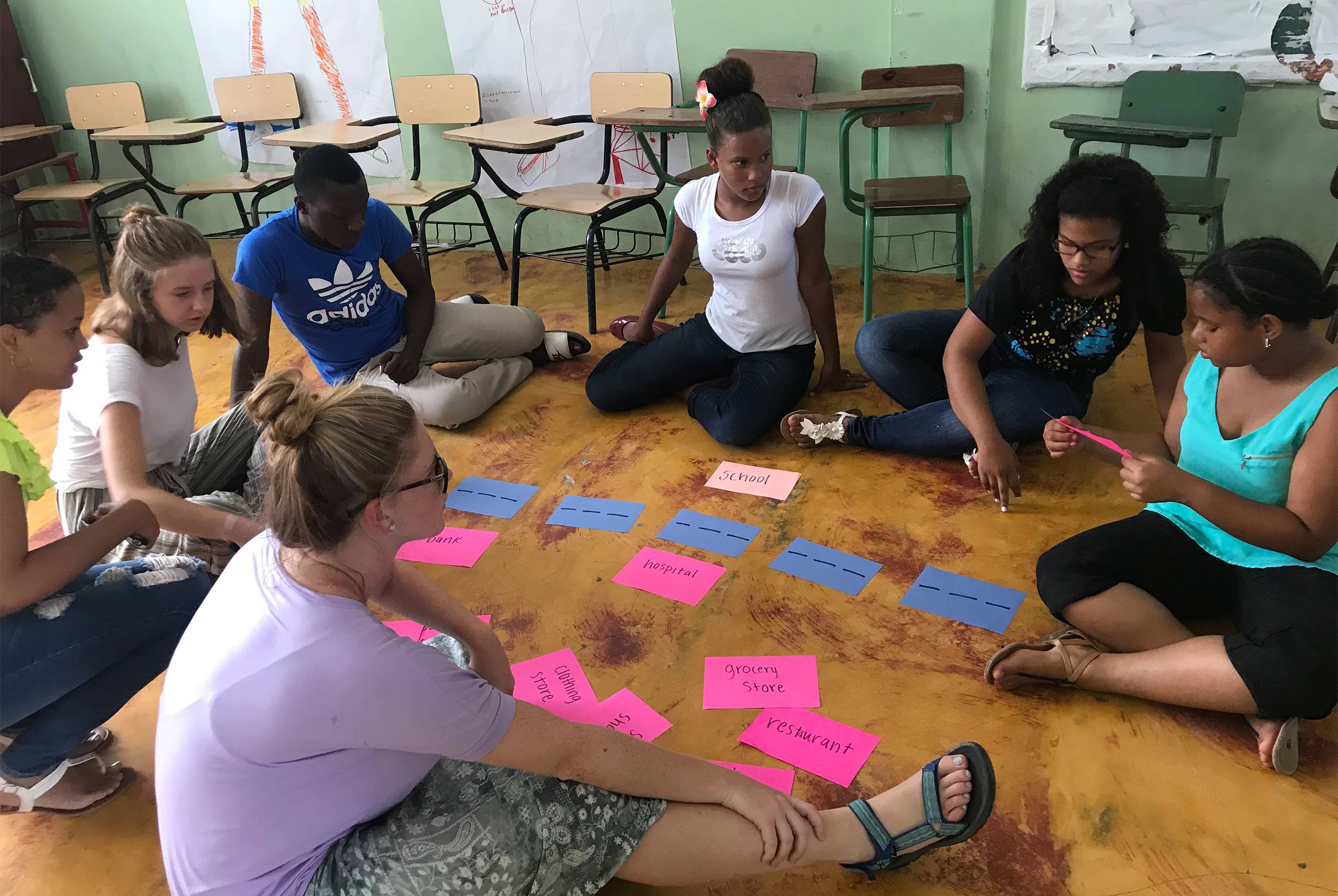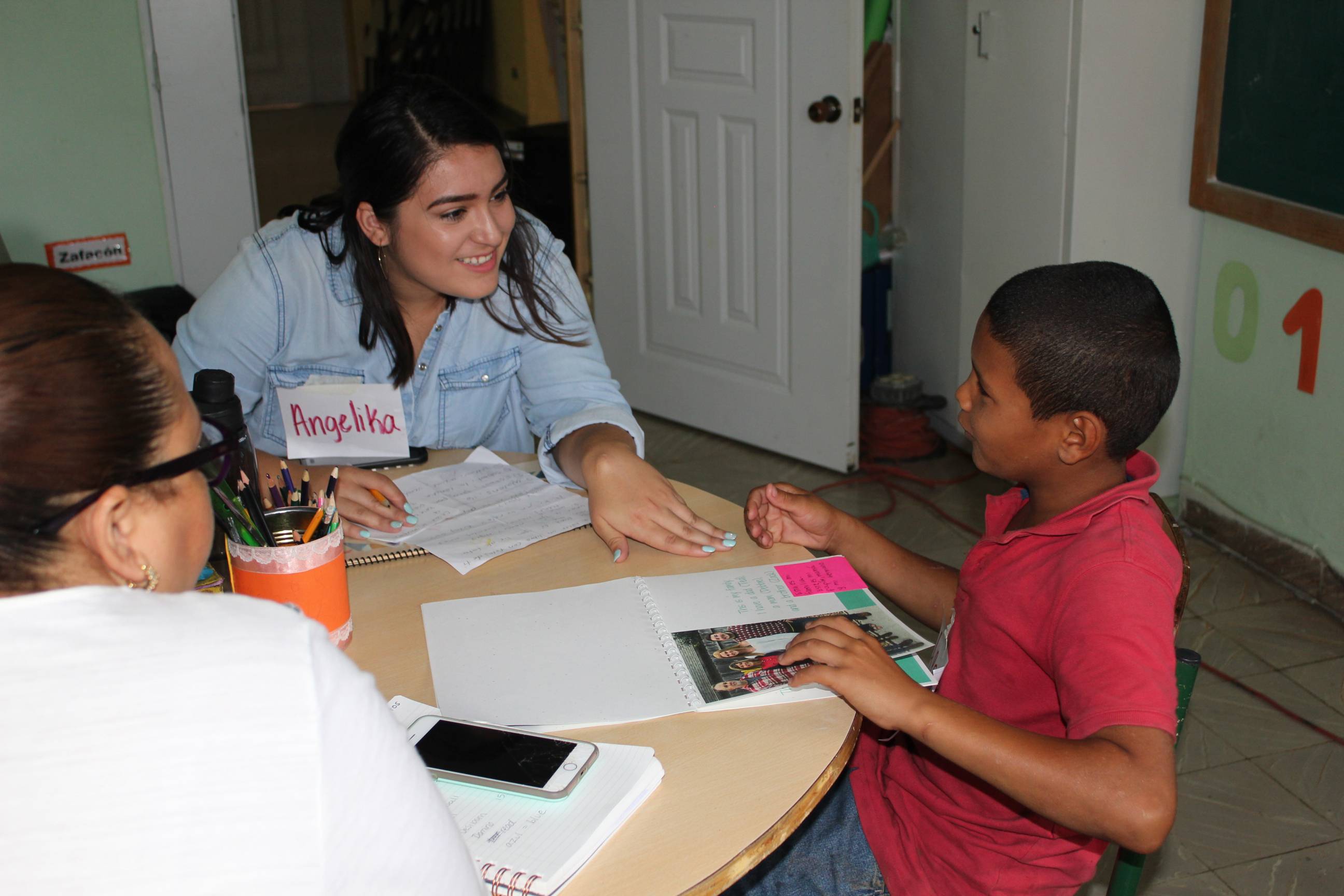Study Abroad to Dominican Republic Brings Cultural Understanding to ESL Students
Study Abroad to Dominican Republic Brings Cultural Understanding to ESL Students
by Emma Carberry
Outreach Coordinator, College of Education
November 1, 2018
In 2015, Dr. Minda Morren López went on a Teachers Social Justice Tour in the Dominican Republic. López had assisted Dr. Lori Czop Assaf on study abroad in South Africa and wanted to create a new study abroad experience for some time, and saw great potential in the Dominican Republic for learning opportunities. Not only was it a Spanish-speaking country, making it a perfect fit for the elementary education program’s English as a Second Language (ESL) block, but the country also faces similar societal and educational issues to those in the United States. López thought this location would provide a great learning experience for her students while also allowing them to reflect on United States culture.

This past summer, the second group of ESL students embarked on this study abroad experience, which began with on-campus classes about ESL theory and was followed by 17 days on-site in the Dominican Republic. While abroad, the bulk of the journey included visits with several non-profit organizations, allowing students to immerse themselves in service-learning. At two of those sites, students worked on teaching English to students of various ages (children, adolescents and adults), as well as interacting with diverse populations and English language learners.
This immersive experience is beneficial to the students who participate, as it offers a more hands-on teaching opportunity than students receive in the traditional ESL block, giving them a jump start on student interaction that prepares them for their field blocks. Additionally, although López travelled during the Summer I semester this year, she plans to offer the course in Summer II in future iterations, so that students are able to take their early childhood education block in Summer I, allowing them to complete a full semester of classes in one summer.
The first organization the nine students visited, along with López and Dr. Christine Norton of the Social Work department, was Acción Callejera, a Dominican non-profit based in Santiago that serves street children. There, Texas State students worked with youth in small groups and practiced teaching art, games, and literacy tasks with them. The organization provides children with lessons in the morning, followed by a physical education class, a shower and lunch, all before they head out to their jobs, doing what they can to provide for themselves. López choose Acción Callejera as a site for her students because she saw the value in working with children who have experienced trauma, as well as the benefit of the socio-emotional learning that would occur there.


Next, the group travelled to Cabarete, where they worked with the DREAM Project, which focuses on early childhood education, high quality primary education and holistic youth development for local children. Much of their work prepares young adults and adolescents for tourism careers (restaurants, hotels, etc.) by equipping them with English language skills for those settings.

At the time of the visit, DREAM Project was preparing for summer school and needed additional staffing assistance. They asked Texas State student, Angelika Benavidez to stay on with them for an additional month to work more with their students. The decision to stay was difficult for Benavidez, but ultimately, she didn’t want to miss out on the opportunity. She also wanted to work more with the students and continue serving as a role model for them. “These children we were working with – they have parents, they have role models, but they don’t have the resources,” she shared, “We have those resources. So, we were able to model for them, and be something that they never would have realized, like ‘Oh, I can do that’ or ‘I can have a goal because this person has a goal.’”
After returning from the Dominican Republic, Benavidez had about two weeks to reflect on her experiences before the fall semester started. During that time, she says, she realized her privilege, and started to change the way she looks at her personal life and her teaching philosophy. In the future, she wants to bring culture into her classroom, and aid her students’ awareness of what is going on in the world. By the end of her experience, Benavidez says she fell in love with the culture and is thankful to have taken the ESL block in the study abroad format. “I’ve never had the opportunity to see [another culture], and interact with it, and I’m glad I did,” she said. Now, her future sights are set on teaching abroad after getting some experience in the United States. She would love to teach in another Spanish-speaking country and continue learning alongside students of different cultures.